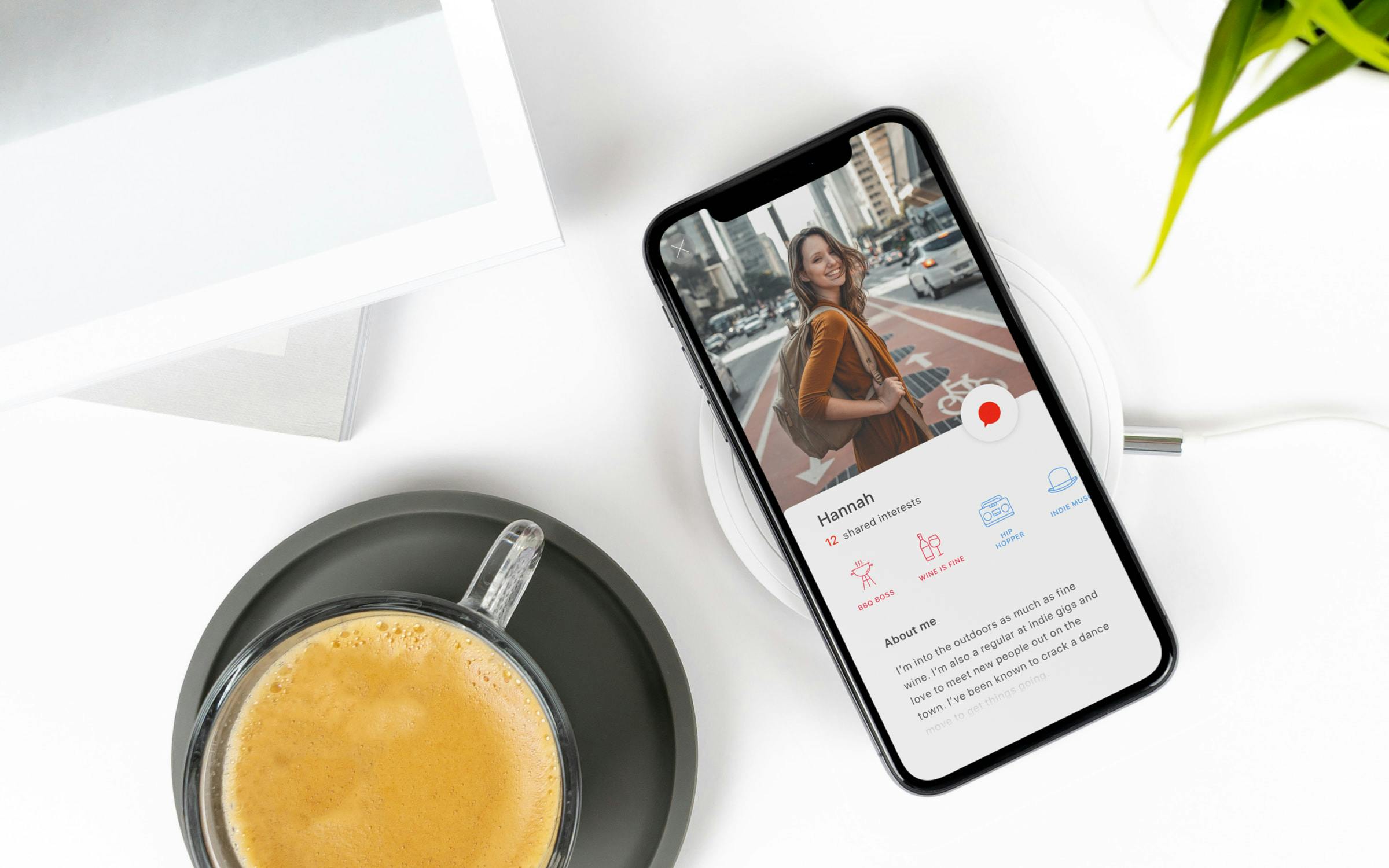



The Jelato client came to us as a start-up with a concept, to build a social app that helps people connect in real life through shared interests. As the Lead UX/UI Designer for the project, I worked with them to create a product in alignment with their vision. We set out to create a friendly and youthful iOS app experience that although an MVP, would look and feel as good as their mature, well-funded competition.

Discover
Problem space & research.
To kick-off the discovery for Jelato we explored the hugely competitive market for social apps, and we mapped the user experience to start finding the pain points. Digging further, we conducted user interviews to get deeper into the world of social apps, and to discover more about what users were loving and loathing about their experiences.

Setting objectives.
Working with the client we decided to focus on clearly distinguishing the product as a friending not dating app. The business objectives were articulated as:
01 Gather first-hand user stories to reveal insights about their behaviors, attitudes, motivations, and needs.
02 Create an engaging MVP experience that enables people to connect with friends more easily.
03 Build revenue-generating capabilities into the product infrastructure, working off an advertising business model.

Core user needs
As a lean MVP start-up, we used core methods to research the problem space and identify key pain points for users:
01 They were finding it hard to meet people in Vancouver - we had to make introductions and sparking chat with a stranger less awkward.
02 They were bored with existing 'friending' app experiences but loved Instagram - we had to create a simplified and refreshing experience.
03 They were fatigued by the relentless nature of dating apps - the experience had to be distinctly unromantic.

Crafting personas.
We crafted user personas based on the research that helped us further humanize the journey. For this persona, key differentiators would be making it easy for them to ‘gel’ through shared interests and reducing the friction for the chat feature.

Define
Information architecture.
From the business requirements, I developed the user stories and epics that informed the information architecture map. From here, the development team had what they needed to begin their work setting-up the technical architecture.

Ideate
Creating a brand.
Early in the project, we hit a road bump with the original brand name failing to pass a trademark hurdle. Pivoting quickly we supported our client through the brand discovery process, and I worked with them to develop a new digital identity. We presented some shortlist options, tested it with a focus group, and then settled on a humanistic wordmark and a vibrant gelato-inspired icon and color palette.

Translating to product.
The UI style guide shows how I then translated the digital branding into the visual design of the product's interface. There was a strong emphasis on iconography which users responded well to.

Finessing every touchpoint.
Wanting to add X-factor and bring it to life, I worked to create a distinct illustrative style through the interstitial screens that amplified the app's fun and friendly personality.

Implement
Experience events.
We wanted the app to be more to our users than just a chat platform. We wanted to make it seamless for folk to get the crew together by creating events in the app. We integrated with Google Places for location search and select, we streamlined form entry and made it super simple to share events with friends using iOS functionality.

Chat to connect.
The client wanted the chat to disappear after 24 hrs to propel users to reply faster. To make this behavior work smoothly, we developed a flow that used push notifications and count-down alerts for expiring messages. Our development team executed a low-cost alternative by integrating with Twilio’s programmable chat solution.

The finished experience.
Jelato's high fidelity designs exude a youthful and upbeat vibe.
Evaluate
Recapping objectives.
01 Gather first-hand user stories to reveal insights about their behaviors, attitudes, motivations, and needs.
02 Create an engaging MVP experience that enables people to connect with friends more easily.
03 Build revenue-generating capabilities into the product infrastructure, working off an advertising business model.
Take outs & learnings.
Did we achieve what we set out to? In retrospect, the time spent on rebranding diverted resources from more extensive research of the problem space and user testing of iterative prototypes. In terms of design and production, I believe we went over-and-above to create a polished and robust MVP experience, whilst also implementing revenue-generating capabilities. Jelato is a young business and product, with the right product and marketing strategy it has the potential to truly take-off.

















 Previous
Previous